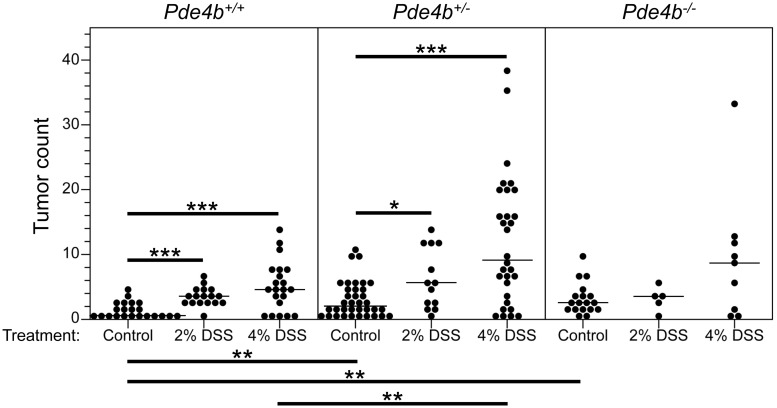Fig 9. Test of the effect of Pde4b genotype on colonic adenoma numbers in Apc Min/+ mice treated with DSS.
Apc Min/+ animals of Pde4b+/+, Pde4b+/- and Pde4b-/- genotypes treated with 2% and 4% DSS. Gross colonic tumor counts were measured in the colons. Two treated heterozygotes were sacrificed at 87 days; the treated homozygous mutants were sacrificed between 43 and 100 days. The other animals were all sacrificed at 100 days. The colonic tumor count of each animal is presented in this scatter plot. For the 2% DSS treatment, the numbers of mice and average colonic tumor multiplicity of each Pde4b genotype were: Pde4b+/+ animals (17) tumor count of 3.9 ± 1.4; Pde4b+/- animals (13) tumor count of 6.5 ± 4.6; Pde4b -/- mice (5) tumor count of (3.6 ± 1.8). We cannot rule out the null hypothesis that there is no difference between gross colonic tumor number based on Pde4b genotype with 2% DSS treatment (p = 0.38 by the Kruskal-Wallis test). For animals treated with 4% DSS, 30 Pde4b+/- animals show a higher average colon tumor count than 21 Pde4b+/+ animals (12.2 ± 9.9 versus 5.4 ± 3.9); p = 0.009 by the Wilcoxon rank sum test. Only 9 Pde4b-/- animals entered the study; those colon tumor counts (9.7 ± 9.9) are not significantly different from counts for the other two genotypes. *, p ≤ 0.05; **, p ≤ 0.01; ***, p ≤ 0.001; two-sided Wilcoxon rank sum test. The median for each group is indicated by a thin horizontal line.

